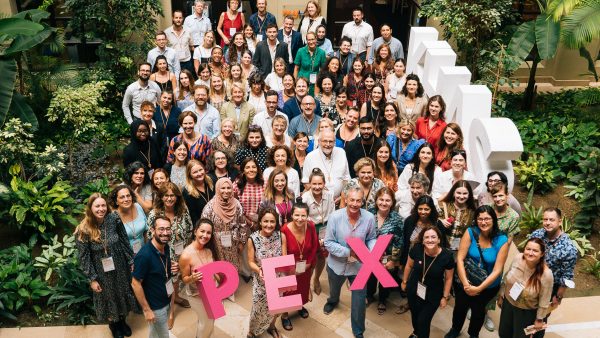Philanthropy
The term philanthropy is commonly used as the general term for foundations and donations. This is not entirely incorrect, but it has a considerably narrow meaning. First of all, philanthropy is very generally referred to as a positive attitude towards other people, like the term φιλανθρωπία (philanthrōpía) derived from the Greek, which derives from the words philos (friend) and anthropos (person). It appeared in Greek tragedies in approximately 500 BC and in the fourth century in Plato’s dialogue Eutyphron, in which the author Sokrates allows himself to be described as a philanthropist, because he lets his listeners share his wisdom lavishly and free of charge. Philon von Alexandria, a Jewish philosopher from the first century AD, conceptualised philanthropy as caring for all people, but also as for every individual and for all living things. Philanthropy finds a striking expression in the Christian commandments to love one‘s neighbour as oneself. Ecclesiastical interpretations that want to distinguish this commandment from a secular idea of philanthropy because of its connection with the commandment of the love of God seem absurd in this respect. The term also appears in Paul’s epistles in the New Testament several times. Other religious communities, especially Judaism and Islam, have similar conceptions of positive interpersonal interaction. In the 6th century AD, the Roman Emperor Justinian emphasised the meaning of philanthropy in his legislation, which held tremendous importance for Christian and Muslim foundations, among others. In his Novellen, part of the Corpus iuris civilis, he emphasised that he was a philanthropic master and his laws were philanthropic in a broad sense. Philanthropy and justice are, in his view, the highest human goods. >> More information (in German)
Our projects on philanthropy
Current projects
- Diaspora Philanthropy in Germany
The aim of the project ‘Diaspora Philanthropy in Germany’ is, in addition to compiling an up-to-date inventory, to formulate a concrete action plan that enables or facilitates philanthropic action by people with a history of migration in Germany. >> More information
Ongoing Projects
- Trasnational Giving Programme
Promotion of cross-boarder philanthropy / Transnational donor programme
Completed Projects
Philanthropy.Insight (completed in 2022)
As public distrust is sweeping the globe, trust has become a central resource for civil society, and especially philanthropy. Against this backdrop, the Philanthropy.Insight project proposes five principals along which philanthropies are able to align their practice towards a more trust-driven approach. In particular, the project concentrates on developing the modalities of a philanthropic concept of trust, and studies how self-assessments beyond fixed indicators might contribute to strengthen trust and demonstrate responsibility of future philanthropic practice. The Philanthropy.Insight project is organised by the Tocqueville Forum of the Maecenata Foundation and receives support from the Carnegie UK Trust and the Fundação Calouste Gulbenkian. >> More information
- Research project: Engaged in a new environment (completed in 2018) [in German)]
- Accompanying research: Civil society and refugees in German communes (completed in 2016) [in German]
- The meaning of life and heritage (completed in 2015) [in German]
- Philanthropication through Privatization Project (completed in 2014) [in German]
- Colloquien Series: Wealth and responsibility (completed in 2012) [in German]
- Fundraising, donor behaviour and civil society (completed in 2010) [in German]
- Town planning, civil society and civic engagement – a research and publications project (completed in 2009) [in German]
- Family Foundations Philanthropy (completed in 2009) [in German]
- For more civic engagement (completed in 2009) [in German]
- Venture Philanthropy (completed in 2007) [in German]
News on philanthropy

“11 Trends in Philanthropy for 2023” published
29.08.2023 I “The philanthropic sector is an ecosystem: a web of interdependent actors, infinitely variable, striving constantly to build something greater than the sum of […]
Review: PEX forum 2022 and the strong urge to dive deeper
08.11.2022 I Insight into PEXForum 2022 in Istanbul PEX forum 2022 and the strong urge to dive deeper By Elisa Spreter From 24th to 26th […]
Review: PEX forum 2022 and the strong urge to dive deeper
08.11.2022 I Insight into PEXForum 2022 in Istanbul PEX forum 2022 and the strong urge to dive deeper By Elisa Spreter From 24th to 26th […]





